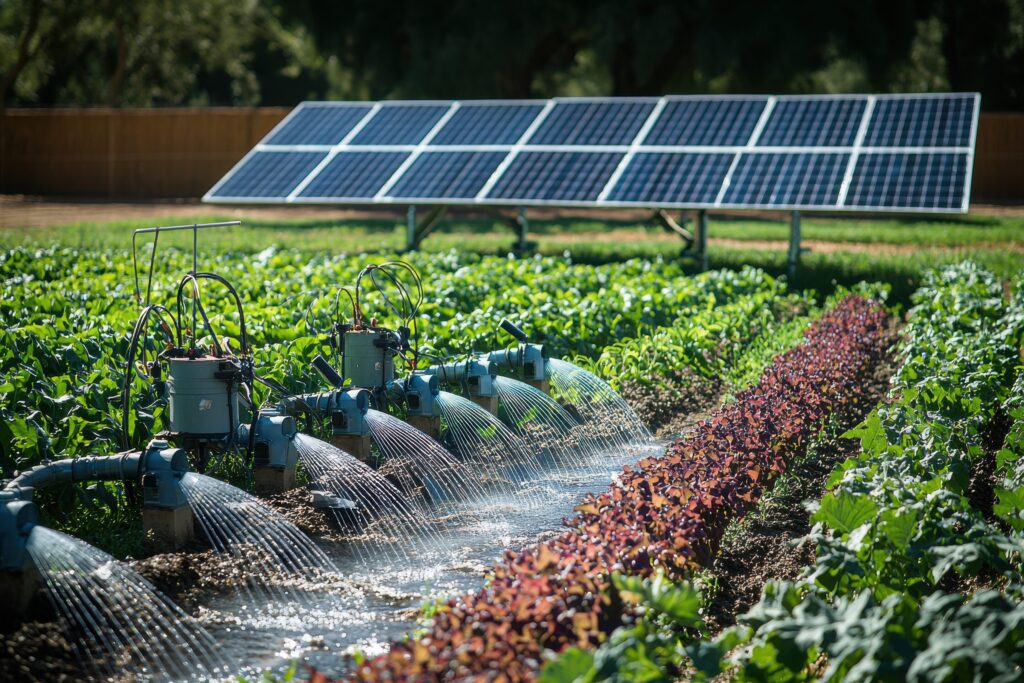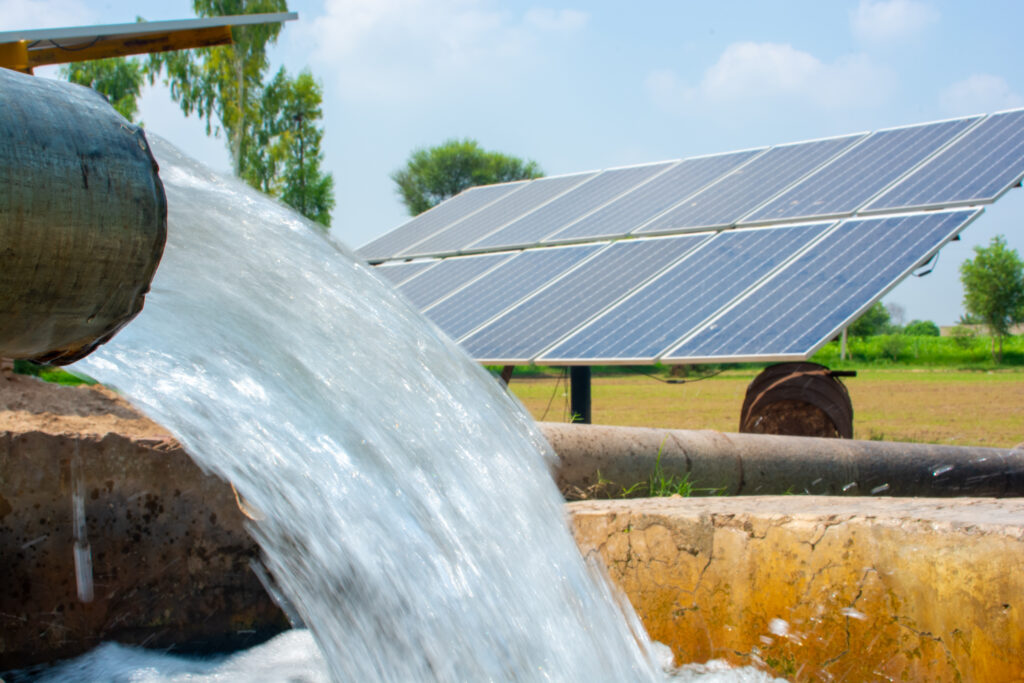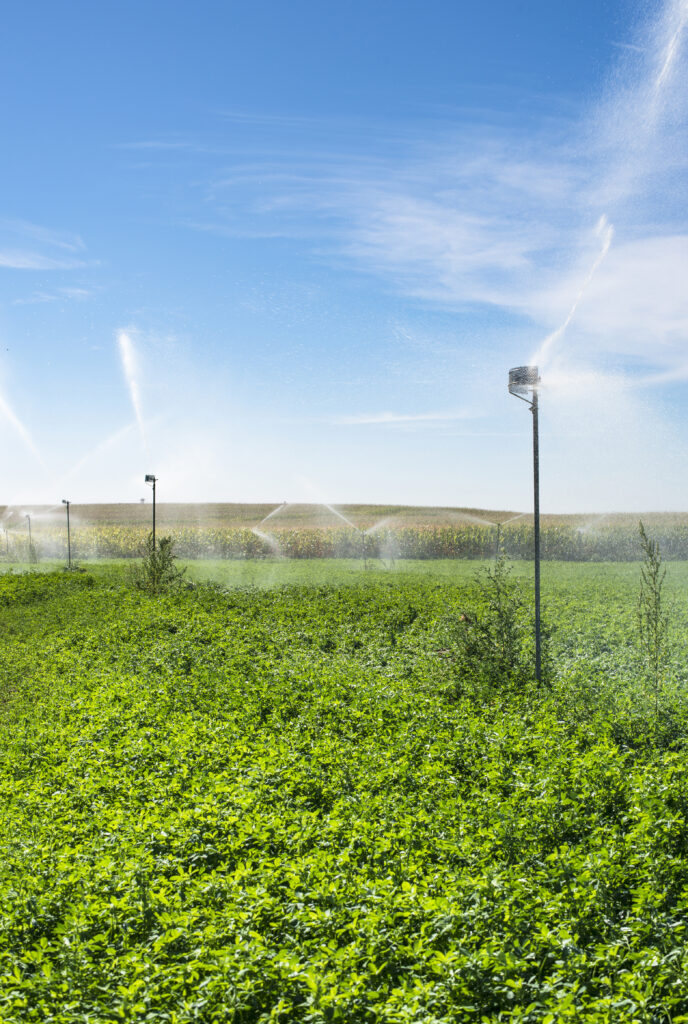


Solar-powered irrigation systems, also known as solar powered water pumps, represent a crucial development in sustainable farming practices, including Sustainable Farms. As the world grapples with climate change, the need for efficient and eco-friendly irrigation methods on Sustainable Farms has never been more pressing. Here’s an in-depth look at the technology, benefits, and future prospects of solar powered water pumps in Sustainable Farms.
Understanding Solar-Powered Tube Wells and Pumps
Solar-powered water pumps in Sustainable Farms utilize solar panels to convert sunlight into electrical energy, which then powers a solar pump that draws water from underground aquifers. These systems offer a sustainable solution for irrigation on Sustainable Farms, especially in regions where electricity supply is sporadic or entirely unavailable.
Implementing solar technology on Sustainable Farms can significantly boost productivity and environmental stewardship.
A typical setup includes solar panels, a pump controller, a solar pump, and the necessary plumbing to transport water to crops. The efficiency of these systems has improved significantly over the years, making them more accessible to farmers worldwide.
The Benefits of Using Solar-Powered Systems
Cost-Efficiency: One of the primary advantages of the solar power irrigation is the reduction in operational costs. Farmers can save significantly on electricity bills, particularly in areas with high energy costs. While the initial investment in solar technology can be substantial, the long-term savings often outweigh the upfront costs.
Sustainability: Solar energy is renewable and abundant. By harnessing the power of the sun, farmers can reduce their dependence on fossil fuels, thus contributing to environmental conservation. This shift not only helps to combat climate change but also promotes the sustainability of farming practices.
Increased Reliability: In many agricultural regions, access to a stable electricity supply can be unpredictable. Solar-powered systems provide a reliable and consistent energy source, enabling farmers to irrigate their fields without interruptions, regardless of local power outages.
Easy Maintenance: Solar pumps generally have fewer moving parts than conventional pumps, leading to lower maintenance requirements. The absence of complex electrical systems also means less opportunity for failures, making solar pumps a practical choice for many farmers.
Scalability: These systems can be easily scaled to meet the specific needs of farms, whether they are small family-owned operations or larger commercial enterprises. Farmers can start small, with a single solar pump, and gradually expand their solar system as their needs grow.
For Sustainable Farms, this cost-efficiency translates directly into increased profitability and sustainability.
Sustainable Farms utilizing solar energy contribute significantly to reducing the carbon footprint of agriculture.
Challenges in Adoption
Despite their numerous benefits, the adoption of solar pumps does face challenges:
Initial Investments: While solar technology has become cheaper, the initial costs can still be high for smallholder farmers, especially those in developing countries. Access to financing and grants can help mitigate this issue.
Lack of Awareness: Many farmers may not be aware of the benefits of solar technology or how it can be implemented on their farms. Education and outreach programs are necessary to promote awareness and understanding.
Weather Dependency: Although solar is a renewable energy source, its availability is dependent on weather conditions. Periods of cloudy weather can reduce efficiency. However, with advancements in battery storage technology, this issue is becoming less of a limitation.
Technical Expertise: Installing and maintaining solar pumps may require specific technical skills. Training programs can help build the necessary expertise within rural communities.
The Future of Solar-Powered Agricultural Systems
The future of solar pumps in Sustainable Farms looks promising. As technology continues to improve, the efficiency and affordability of solar systems for Sustainable Farms are likely to enhance.
Furthermore, research into battery technologies and hybrid systems can overcome the limitations of solar energy dependency. Developing better storage solutions will ensure that farmers can irrigate even when sunlight is not available.
Raising awareness about solar technology is vital for the success of Sustainable Farms.
Conclusion
Weather dependency can affect operations on Sustainable Farms, but advancements in technology are helping to mitigate this issue.
Solar-powered agricultural tube wells and solar pumps offer a sustainable solution to water scarcity and energy inefficiency in farming. They revolutionize irrigation practices, making them more eco-friendly and cost-effective. With continued advancements in technology and greater awareness among farmers, we can expect solar-powered systems to play a vital role in the future of agriculture.
The future of solar pumps in Sustainable Farms looks promising with ongoing technological advancements.
Farmers looking to transition to solar technology should reach out to local renewable energy providers to explore available options.
Developing better storage solutions will ensure that farmers can irrigate even when sunlight is not available. This enhancement will contribute to the reliability and efficiency of solar-powered irrigation systems, further promoting sustainable farming practices. As the agricultural sector continues to embrace renewable energy solutions, the integration of advanced storage technologies becomes increasingly crucial. By addressing the intermittency of solar power, farmers can optimize their water usage and maintain consistent crop yields. Investing in robust storage options will be key to maximizing the benefits of solar energy pumps on farms of all sizes.
For more insights and detailed guidance, consider checking resources like Andromeda Energy.
For additional information, you might find these blogs helpful:
Farmers on Sustainable Farms looking to transition to solar technology should reach out to local renewable energy providers to explore available options.
Exploring solar solutions is essential for the success and sustainability of all Sustainable Farms.
- Pakistan’s Solar Energy Surge: Unlocking the Potential of Sunshine
- How are we Empowering Pakistan with Green Energy Revolution
- Revolutionize Farming with Power of Solar Energy Efficiency
Renewables – Energy System – IEA

IEA – International Energy Agencyhttps://www.iea.org › energy-system › renewables
Renewable Energy World
Renewable Energy Worldhttps://www.renewableenergyworld.com


Leave a Reply